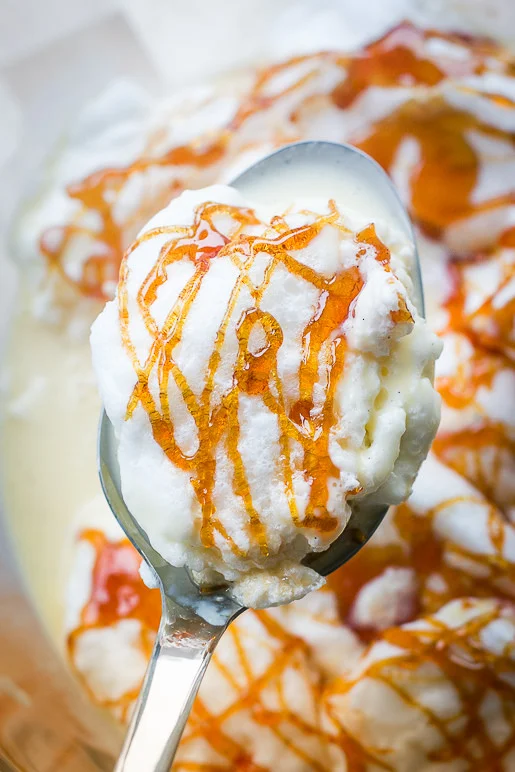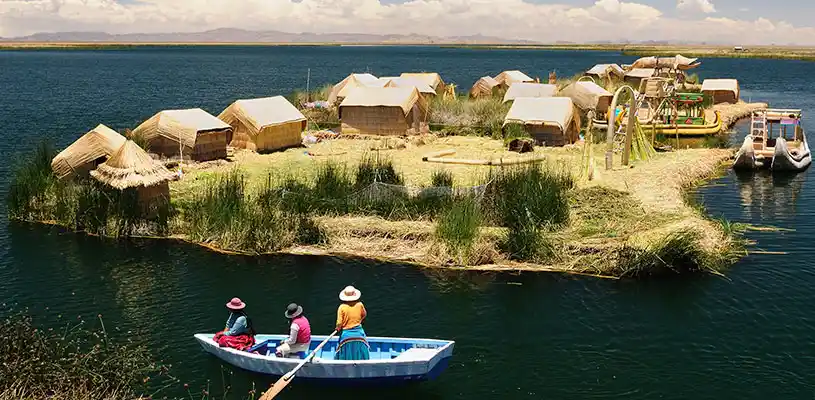“a French take on what the English would describe as ‘a nursery pudding’”. We’re reared on suet dumplings and steaming semolina, while the French get “pillowy, airy meringues floating on a velvety bed of vanilla custard”: no wonder the two nations sometimes find it hard to see eye to eye." Felicity Cloake

Take note of that 'nursery pudding' concept because I can't tell you how many times the recipe creator I was reading referred to some childhood memory when they were introducing their recipe, including this one which even had the title Ile Flottante à la pistachio pour Benoit (Pistachio floating island for Benoit). For Benoit - her older brother for whom she used to make it when she wanted to placate him. The author is Béa, of a website called La Tartine Gourmande. Curiously I think her recipe is based on one from Martha Stewart, whose name she constantly spells as Stuart - well that's where the pistachios come from anyway. You would think that with such a link to a childhood memory that the recipe would come from there too. And maybe it mostly does. She certainly doesn't agree with everything that Martha Stewart does - e.g.
"She also used cream of tartar for the meringue which I am simply foreign to as I never came across the equivalent in France. What is it? What do you do with it? Does anyone know?"

Felicity Cloake does her usual thing and takes you through the variations, but curiously she doesn't refer to the fundamental question - are these Iles Flottantes or Oeufs á la neige? The title of the piece is How to make perfect Iles Flottantes, but actually I now think that what she ends up making is Oeufs à la neige (Snow eggs).
Do you see the difference between hers and the one at the top of the page? It's a difference that I now think is the crux of the matter. Iles Flottantes are actually, usually Ile Flottante - just one moulded egg island floated in a crème anglaise sea, usually with a some form of caramel decoration - as these: Floating islands with spun sugar from Valli Little; a pretty classic looking version from Taste of France and one from Genevieve Yam on the Serious Eats website.
"Oeufs à la neige, or snow eggs, are a classic French dessert of small poached meringues floating in a custard sauce. Some people call it ile flottante or floating island, but that dessert is, technically, one big meringue floating in custard sauce." Molly Watson/The Spruce Eats
The other potential difference - although one that is not always followed through on - is that the islands are moulded and cooked in a bain-marie in the oven, which I gather makes them slightly firmer - at least on the outside.
Then there are a couple where it's not quite clear whether we have one or more, island or egg?
Ile flottante with praline and lavender crème anglaise from Guillaume Brahimi even though it looks like one island - or egg, sitting on top of another and Floating islands (Iles Flottantes) from Nigel Slater on the BBC Good Food website. Probably more an egg, except there is only one.
Oeufs à la neige, on the other hand are usually plural, smaller and shaped like eggs, with the help of spoons before being poached gently in milk - as are Felicity Cloake's, David Lebovitz's - even though he calls them Iles Flottantes; Molly Watson for The Spruce Eats; Fergus Henderson of St. John's in London who nevertheless calls them Floating Islands and Michel Roux Jr. on the delicious. UK website, who also goes for the islands rather than the eggs. Mind you his are somewhat hybrid.
Fergus Henderson, was in fact yet another one who brought up the 'nursery food' concept:
‘The first thing that I ever cooked from a book, when I was about seven years old, was Îles Flottantes. I was knocked out by it. Those celestial fluffy egg whites! The yellow pool of custard! By merely following words on a page I had created this miracle. A finger had descended from the clouds and pointed to my destiny.’
The classically unadorned versions do remind one of a nursery I suppose. And you have to decide for yourself whether their very simplicity and lack of colour signifies beauty or boredom and bland. We are going to Paris Go for dinner next week. I might try their version because it is indeed a delicious thing. Well I think so.
There is obviously a lot of confusion over which is which, when even famous chefs call them by the incorrect name - if you go for the theory of solitary, moulded, baked and caramel versus, unadorned and poached. They can't really even agree on what the difference is. The Happy Foodie, for example, when talking about the very plain Fergus Henderson version says:
"It’s a controversial view, but Floating Islands should be unadorned by heavy nuts or a constrictive caramel cage. These bind the ethereal clouds with earthly elements, which is the very opposite of your intention. The Happy Foodie
Snow eggs surely? Although I have to say that the unadorned ones do look more like floating islands. The lady from La Tartine Gourmande seems to think the difference is just the caramel but then says - quite rightly:
"The difference is so minimal that we should not focus on this."
Yes who cares.

A last word perhaps - Ile flottante à la bière et popcorn from a Michelin star pastry chef called Morgane Raimbaud - yes beer - and it's even Guinness - and there doesn't seem to be much floating go on here either.

No the last word is something quite different. Floating cities, or towns at least - maybe even individual houses. Not quite the same as artificial islands. Some of those have been created in places like Singapore and Dubai - we won't mention the Chinese - no these are whole floating cities. Not that anyone has actually done it as yet although I think there are a few projects in the pipeline - The Maldives is one of those. And they almost got one started in French Polynesia until the government pulled the plug. There is a lot of interest particularly from South Pacific nations threatened by rising sea levels, but also a lot of criticism, saying that these are schemes for the mega rich. Amazing what engineers can do though isn't it? I don't think these projects have not happened for lack of expertise - it's just lack of money and political will.
But then again does it have to be just for the rich? After all in Peru on Lake Titicaca there have been floating island communities fore a very long time. And aren't there some in Iraq or somewhere like that? These are substantial, albeit simple communities. Albeit on the relativelyy calm waters of a lake rather than an ocean. But they do indeed float.
Fascinating stuff though.






















Comments